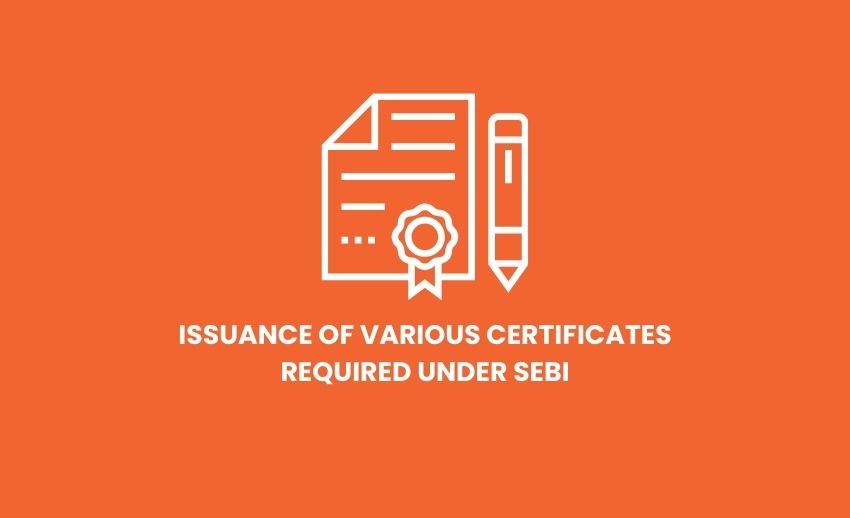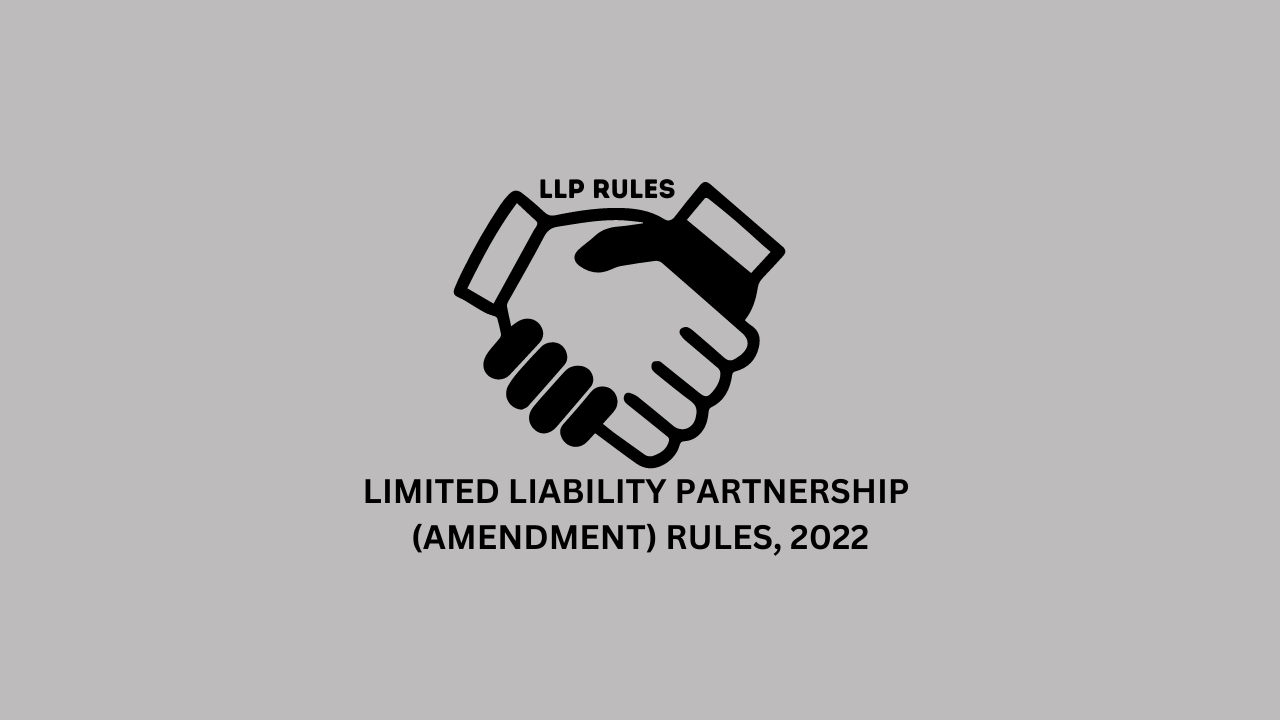
In the dynamic and ever-evolving world of finance, the Securities and Exchange Board of India (SEBI) plays a pivotal role in regulating and safeguarding the interests of investors and maintaining the integrity of the securities market. A critical aspect of SEBI’s regulatory framework is the requirement for various certificates, each serving a unique and indispensable purpose. These certificates are not mere formalities; they are the foundation upon which the financial markets are built, and obtaining them is not just a matter of compliance, but one of paramount importance for anyone involved in the securities industry.
Whether you’re a market participant, an investment professional, or even a novice investor, understanding the significance of SEBI’s certificates is imperative. From the Broker Registration Certificate (BRC) to the Investment Advisor Certification, these documents are your gateway to legitimacy, trust, and competence in the world of financial securities. They signify your commitment to ethical and professional conduct, instilling confidence in clients and investors alike. In a time where financial frauds and misconduct can shatter the trust of millions, obtaining these certificates is more urgent than ever. In this blog, we will explore the importance of these certificates, highlighting their role in ensuring transparency, accountability, and the overall well-being of India’s securities market.
Listed below are some of the most important certificates that are mandatory to be obtained by the Securities Exchange Board of India-:
Certificate of Incorporation-: The Certificate of Incorporation is a crucial document that marks the formal establishment of a company. This certificate is issued by the Registrar of Companies under the Ministry of Corporate Affairs. It includes information such as the company’s name, registered office address, the type of company (private or public), and the date of incorporation. It is a foundational document as it bestows legal recognition upon the company, giving it a distinct legal identity. To obtain the Certificate of Incorporation, a company must prepare its memorandum and articles of association, file these documents with the Registrar of Companies, and pay the requisite registration fees. The process ensures that the company complies with the legal and regulatory framework governing businesses in India.
Certificate of Registration-: The Certificate of Registration is primarily associated with entities operating in the securities market, such as mutual funds, portfolio managers, and investment advisors. SEBI mandates the registration of these entities to protect the interests of investors and maintain the integrity of the market. The process of obtaining this certificate involves submitting a detailed application to SEBI, including information about the entity, its management, and adherence to SEBI’s regulations. The registration process may include background checks, interviews, and a demonstration of the entity’s capability to meet regulatory requirements. The certificate signifies that the entity is authorized to operate in the securities market and is in compliance with SEBI’s regulations.
Certificate of Compliance-: The Certificate of Compliance is a testament to a company’s commitment to adhering to various legal and regulatory requirements. This certificate helps demonstrate that a company conducts its business activities transparently and within the bounds of the law. Companies often employ compliance officers or engage with compliance experts to ensure that they meet all applicable statutory and regulatory obligations. The process of obtaining a Certificate of Compliance typically involves conducting regular internal audits, monitoring changes in laws and regulations, and addressing any issues or non-compliance promptly. It is crucial for maintaining trust with stakeholders and avoiding legal complications.
Certificate of Good Standing-: The Certificate of Good Standing confirms that a company has a clean legal record and is not entangled in unresolved legal disputes or pending issues. This certificate is vital for companies seeking to expand, enter into contracts with other businesses, or obtain licenses and permits. It assures stakeholders, including potential investors and partners, that the company is a reliable and trustworthy entity. Obtaining this certificate usually requires a thorough review of the company’s legal history, including ongoing litigations, taxes, and regulatory compliance. Resolving any pending issues is a key part of this process.
Due Diligence Certificate-: Due Diligence Certificates play a pivotal role in mergers, acquisitions, and investments. These certificates confirm that a comprehensive due diligence process has been conducted, verifying the financial, legal, and operational aspects of a business. This is essential for both the acquiring and target companies to ensure transparency and to mitigate risks. Typically, specialized professionals and legal experts are engaged to conduct due diligence, scrutinizing financial records, legal contracts, operational processes, and compliance with laws and regulations. The Due Diligence Certificate provides assurance regarding the authenticity and credibility of the business, which is critical for strategic decisions.
Statutory Auditors Certificate-: The Statutory Auditors Certificate is issued by the statutory auditors appointed by the company. It confirms that the company’s financial statements are accurate and have been prepared in accordance with the applicable accounting standards and regulatory requirements. Statutory auditors are independent professionals tasked with ensuring the financial transparency and accountability of a company. The audit process involves a thorough examination of the company’s financial records, transactions, and internal controls. This certificate is essential to maintain investor confidence, as it attests to the reliability and accuracy of the financial statements.
Legal Compliance Certificate-: The Legal Compliance Certificate affirms that a company complies with various legal and regulatory requirements, covering a wide range of aspects, including taxation, labor laws, environmental regulations, intellectual property, and corporate governance. Companies often conduct regular internal audits, engage legal experts, and maintain compliance management systems to ensure that they meet these legal obligations. This certificate is vital for businesses to operate within the boundaries of the law and prevent legal disputes. It also enhances the company’s reputation and trustworthiness among stakeholders and regulatory authorities.
These certificates are instrumental in ensuring the legal compliance, transparency, and trustworthiness of businesses in India. They serve as essential tools for building trust with stakeholders, attracting investments, and expanding business operations. The processes involved in obtaining these certificates are rigorous, requiring meticulous assessments, audits, and strict adherence to statutory and regulatory requirements, contributing to the overall integrity and credibility of a business.
Investor Defence
The certificate requirements imposed by SEBI have a significant impact on investor protection. SEBI ensures that market participants meet regulatory standards and best practices by requiring them to obtain specific certificates. This promotes transparency and accountability while also protecting investors’ interests. Investors can be confident that the entities they deal with have been thoroughly vetted and meet the necessary qualifications.
Market Integrity and Trust
SEBI’s certificate requirements help to maintain the overall integrity and confidence in the securities market. SEBI ensures that market participants operate in a fair, transparent, and ethical manner by establishing a regulated framework. This fosters investor trust, boosts market confidence, and encourages greater participation in the securities market.
Standardization of Practices
SEBI’s certificate requirements help in standardizing practices within the securities market. The certifications ensure that market intermediaries, companies, debenture trustees, depository participants, credit rating agencies, and investment advisers follow consistent guidelines and adhere to the prescribed regulatory norms. This leads to a more consistent and reliable market ecosystem.
Enhanced Regulatory Compliance
SEBI’s certificate requirements act as a catalyst for improved regulatory compliance. Market participants are compelled to meet the regulatory obligations set forth by SEBI to obtain the necessary certifications. This ensures that the entities operate within the legal framework, adhere to disclosure requirements, maintain proper corporate governance practices, and fulfill their fiduciary responsibilities. Enhanced regulatory compliance contributes to a well-regulated and transparent securities market.
Investor Confidence and Participation
The existence of SEBI’s certificate requirements boosts investor confidence and encourages greater participation in the securities market. Investors feel more secure when dealing with certified entities as they have the assurance that these entities have undergone the necessary scrutiny and meet the regulatory standards. This can lead to increased investor participation, higher trading volumes, and greater liquidity in the market.
Quality Control and Professionalism
SEBI’s certificate requirements establish a level of quality control and professionalism among market participants. The certifications validate the expertise, qualifications, and adherence to ethical practices of the entities. This ensures that investors are dealing with professionals who have the necessary knowledge and skills to provide reliable services. It also encourages continuous professional development and adherence to high standards within the securities industry.
Deterrence of Unscrupulous Practices
The certificate requirements serve as a deterrent to unscrupulous practices in the securities market. By setting strict eligibility criteria and enforcing regulatory compliance, SEBI aims to prevent fraudulent activities, market manipulation, and unauthorized offerings. The existence of these requirements acts as a barrier to entry for entities that do not meet the necessary qualifications or cannot comply with the regulatory obligations.
Strict Eligibility Requirements
Meeting the stringent eligibility criteria set by SEBI for obtaining the required certificates is one of the primary challenges faced by market participants. Experience, qualifications, infrastructure, financial capabilities, and track record are frequently included in these criteria. Meeting these criteria can be difficult, especially for smaller or newly established entities that may lack the same level of resources or established track record as larger market players.
Regulatory Difficulty
SEBI’s regulatory framework is extensive and constantly evolving in order to keep up with changing market dynamics. Navigating the complex regulatory landscape and comprehending the complexities of the requirements can be difficult for market participants. Multiple guidelines, circulars, and amendments may be involved in the regulations, necessitating careful interpretation and compliance.
Cost Implications
Obtaining the necessary certificates from SEBI can involve significant costs for market participants. This includes fees associated with the application process, ongoing compliance requirements, infrastructure investments, and maintaining the necessary systems and controls. The financial burden of meeting these costs can be particularly challenging for smaller entities with limited financial resources.
Time Constraints
The process of obtaining SEBI’s certificates can be time-consuming and may involve several stages, including application submission, document verification, reviews, and assessments. Meeting the specified timelines can be challenging, especially if there are delays in the processing or if the market participant needs to gather and provide extensive documentation or information.
Continuous Compliance Requirements
SEBI’s certificate requirements are not a one-time process. Market participants are expected to maintain ongoing compliance with SEBI’s regulations to retain the certificates. This requires dedicated resources and efforts to ensure that the necessary compliance measures, reporting obligations, and other regulatory requirements are consistently met. Continuous compliance can be demanding and may require regular monitoring, updating of policies and procedures, and prompt response to any changes in regulatory guidelines.
Regulatory Oversight and Scrutiny
SEBI exercises rigorous oversight and scrutiny over market participants to ensure compliance with its regulations. This can involve periodic inspections, audits, and reviews by SEBI officials. The constant regulatory scrutiny can be a challenge for market participants, as they need to be prepared to demonstrate their compliance, maintain proper records, and promptly address any issues identified during regulatory inspections.
Evolving Regulatory Landscape
SEBI’s regulations and requirements are subject to change based on market conditions and evolving regulatory frameworks. Staying updated with the latest regulatory developments, amendments, and new guidelines requires continuous monitoring and a proactive approach to compliance. Adapting to the evolving regulatory landscape can be a challenge, especially for entities with limited resources or internal expertise.
SEBI’s certificate requirements are critical to the integrity of India’s securities market. These certificates promote market confidence and credibility by ensuring compliance, transparency, and investor protection. SEBI establishes a strong regulatory framework that promotes fair practices, accountability, and a level playing field for market participants by mandating the issuance of these certificates. To maintain trust and uphold the highest standards of professionalism and regulatory compliance, market intermediaries, companies, trustees, depository participants, credit rating agencies, and investment advisers must diligently adhere to SEBI’s requirements








